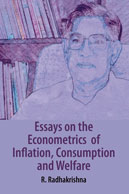New Releases...
Download Catalogue...
Download Excel Data
Download PDF Catalogue
You will get a Excel file with detail about catalogue.
You will get PDF file with detail about catalogue.
Detailed info...
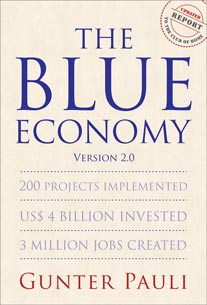
Hard-cover • 2015
Pages: 420
ISBN: 9789332701519
US$29.95
+ Add to Cart
Publisher:
Academic Foundation
The Blue Economy
200 Projects Implemented US$ 4 Billion Invested 3 Million Jobs Created
Gunter Pauli
About the Book
The Blue Economy takes readers beyond the obvious and aims to wake up the entrepreneur in all of us. The innovations it explores are founded in solid science and demonstrated by multiple platforms. Committed grass-roots entrepreneurs worldwide can realise triple cash flow using open-source innovations that create competitive business models. This book will encourage thousands and perhaps millions of us to apply a Blue Economy business model that will shift us from scarcity to abundance.
Praise for this book
<p>“The Blue Economy shows us that by securing materials and aligning production schemes as nature does, many problems of environmental degradation and pollution would disappear. However, economic policy and core business models largely ignore integrated solutions.Future economic models would do well to take into account the strategic advantage of a portfolio of innovations based on nature and physics. That will be a tall order, but Gunter Pauli’s book, with its rich presentation of how nature and economy can and must collaborate, convincingly shows the way.”<br />
<strong>Anders Wijkman <br />
Member, Swedish Royal Academy of Sciences<br />
European Parliament (1999-2009)</strong></p>
<p> </p>
<p> </p>
<p>“Our current economic crisis is also a crisis of ethics and values which has led to the enrichment of a few and the disempowerment of many. The Blue Economy advocates for a new economy, one led by innovation and creativity to cultivate the next generation of social entrepreneurship. We are in need of such an economy and no one is better placed than Gunter Pauli to offer this to the world.”<br />
<strong>Wendy Luhabe<br />
Chancellor, University of Johannesburg;<br />
Chair, Industrial Development Corporation of South Africa</strong></p>
<p> </p>
<p> </p>
<p>Over the past 30 years as I have built up the computer industry around ACER, Dr Pauli has introduced me to many creative ideas, especially through his Zero Emissions Research and Initiatives (ZERI) organisation. He has devoted himself for decades to theoretical development as well as practical application of zero emission concepts. The ideas he puts forth in The Blue Economy represent a sustainable and competitive business framework based on innovations that offer investors and society financial, social, and environmental benefits. Such opportunities to achieve sustainability, parity, and profitability are not only inviting, but tremendously compelling too.<br />
<strong>— Stan Shih<br />
Founder, ACER Computers (Taiwan)</strong></p>
<p> </p>
<p> </p>
<p>Gunter Pauli masterfully elucidates examples from nature that can help us solve our sustainability problems. There are refreshing and competitive options to artificial, chemical, and technological fixes and their unintended toxic consequences.<br />
<strong>— Yvon Chouinard<br />
Owner, Patagonia, Inc. (USA) </strong></p>
<p> </p>
<p> </p>
<p>Gunter Pauli is a visionary entrepreneur who is able to help us create a Blue Economy based on respecting the Earth’s ecosystems and humankind. His book is destined to be the bible of this new economy, meant for all of us who are working to build a better world.<br />
<strong>— Christian Courtin-Clarins<br />
Chairman, Clarins (France)</strong></p>
<p> </p>
<p> </p>
<p>Our current economic crisis is also a crisis of ethics and values, which has led to the enrichment of a few and the disempowerment of many. The Blue Economy advocates for a new economy, one led by innovation and <span style="line-height: 1.6em;">creativity to cultivate the next generation of social entrepreneurship. We are in need of such an economy and no one is better placed than Gunter Pauli to offer this to the world.</span></p>
<p><strong>— Wendy Luhabe<br />
Co-founder, WITHHOLD Investment Corporation</strong></p>
<p> </p>
<p> </p>
<p>Gunter’s new work, The Blue Economy, presents excellent innovative ideas with practical applications that will help entrepreneurs and consumers to significantly impact the economies of the world, while earning money, generating jobs, and protecting the environment. In envisioning the future, Gunter continues to be an optimist. I am one too. As you read The Blue Economy, you will be introduced to these ideas and their concrete applications. Don’t miss it and recommend it to your friends.<br />
<strong>— Prof Heitor Gurgulino de Souza (Brazil) <br />
Rector, UN University, Tokyo, Japan (1987-1997)<br />
President, World Academy of Arts and Sciences</strong></p>
<p> </p>
<p> </p>
<p>Ultimately, our civilisation will survive if we are able to emulate nature. The Blue Economy illumines the way.<br />
<strong>— Lester R. Brown<br />
President, Earth Policy Institute (USA)<br />
Author, Plan B 4.0: Mobilizing to Save Civilization</strong></p>
<p> </p>
<p> </p>
<p>Although I know too little of ecology, the rich ideas and inspirations set forth in The Blue Economy are worthy of our greatest attention.<br />
<strong>— Elie Wiesel<br />
1986 Nobel Peace Laureate</strong></p>
<p> </p>
<p> </p>
<p>The Blue Economy shows us that by securing materials and aligning production schemes as nature does, many problems of environmental degradation and pollution would disappear. However, economic policy and core business models largely ignore integrated solutions. Future economic models would do well to take into account the strategic advantage of a portfolio of innovations based on nature and physics. That will be a tall order, but Gunter Pauli’s book, with its rich presentation of how nature and economy can and must collaborate, convincingly shows the way.<br />
<strong>— Anders Wijkman<br />
Member, Swedish Royal Academy of Sciences<br />
European Parliament (1999-2009)<br />
Co-president of the Club of Rome</strong></p>
<p> </p>
<p><br />
The Blue Economy is an exceptional vision of what is truly possible in the context of a sustainable economy. Gunter Pauli has worked tirelessly for many years to put substance to the promise of a Blue Economy. His book is the fascinating result of true dedication towards unlocking the potential for sustainability that is universally practiced in Nature’s ecosystems. As investment managers, we always seek great, unique ideas that can make money while solving the world’s greatest challenges. I would urge anyone who is interested in going beyond shallow notions of sustainable business to read this book and be inspired by the real opportunity we now have to create a truly enduring and sustainable economic system based on Nature’s profound wisdom.<br />
<strong>— Colin M. le Duc<br />
Partner, Generation Investment Management LLP (London)</strong></p>
<p> </p>
<p> </p>
<p>Gunter Pauli is an inspired and visionary entrepreneur. He is the kind of business leader and educator the world needs. His concepts and ideas for creating sustainable business and social enterprises are based on a deep understanding of ecosystems. This book belongs in the library of every university, business school, and entrepreneur who wants to make a difference in the world today. <br />
<strong>— Hazel Henderson<br />
Author, Ethical Markets: Growing the Green Economy<br />
President, Ethical Markets Media (USA and Brazil)</strong></p>
<p> </p>
<p> </p>
<p>Gunter Pauli has formulated an entrepreneurial business model that can respond to basic needs, build social capital, and achieve sustainability. His current economic development work with READ in Bhutan is focused on introducing a portfolio of the innovations described in this book as tools to improve the National Happiness Index and foster environmental and social entrepreneurship. Given the mission of the Social Venture Network, his message in The Blue Economy is certain to resonate with a growing community of business and social leaders.<br />
<strong>— Omer L. Rains<br />
Chairman, Rural Education & Development (READ) <br />
Global Director, Marshall Plan Venture Capital Fund</strong></p>
<p> </p>
<p> </p>
<p>apan was among the first to support Gunter Pauli’s early work with zero emissions. I am certain that the innovative approaches he describes in The Blue Economy will give the entire world a powerful engine for a new kind of economy.<br />
<strong>— Prof Kiyoshi Kurokawa, M.D.<br />
Special Science Advisor to the Prime Minister of Japan (2006-2008)<br />
President, Science Council of Japan (2003-2006)</strong></p>
<p> </p>
<p> </p>
<p>The Blue Economy fosters our transition from a product-based economy to a system-based economy. Such a cultural leap requires all of us to see—and move beyond—the connections that have gone into an oblivious core business strategy subject to market tyranny. <br />
<strong>— Dr Catia Bastioli<br />
President, Novamont SpA (Italia) <br />
European Innovator of the Year (2007)</strong></p>
<p> </p>
<p> </p>
<p>As a species, we have evolved in interdependence, formulating the tools for brilliant co-existence. The novel ideas and breathtaking concepts presented in The Blue Economy resonate with our deepest knowing. We are led to recognise that Nature devises systems perfectly suited to continuance. The model of cascading energy and nutrients from one kingdom of nature to the next offers us a necessary paradigm that allows us to envision our place in nature’s congruence.<br />
<strong>— Amy McConnell Franklin, Ph.D, M.Ed., M.P.H.<br />
Emotional Intelligence Education Consultant and Lecturer; <br />
Author, Choose to Change</strong></p>
<p> </p>
<p> </p>
<p>The Blue Economy holds a special place on my desk—front and center. In my 30 years of working for a sustainable future, it is rare to come across a book with such a high level of both intellectual rigour AND joyful wonder. I consider both essential. Gunter Pauli’s insights and extraordinary breadth of solution-oriented scenarios can make your head spin and your heart beat fast. As a student of systems thinking and design, the 100 innovations described fill me with a sense of hope and thrill me with the possibilities for a future I’ll be happy to leave to upcoming generations. <br />
<strong>— Kris Holstrom<br />
Regional Sustainability Coordinator, The New Community Coalition<br />
Colorado organic farmer</strong></p>
<p> </p>
<p> </p>
<p>The Blue Economy reveals, through the eyes of an economist, a panoply of technological innovations based in nature. It shows us that environmental sustainability and company profitability are far from mutually exclusive.<br />
<strong>— Andrew Parker<br />
PhD, Research Leader, London Natural History Museum & <br />
Green Templeton College, Oxford University; Blue Economy Innovator</strong></p>
<p> </p>
<p> </p>
<p>From the GREEN (initiative)<br />
Jump into THE BLUE (economy)<br />
Your RED (balance sheet) becomes BLACK (wealth)!<br />
With the true dynamic of GAIA (naturally . . .)<br />
<strong>— Tomoyo Nonaka<br />
Chairwoman, Gaia Initiatve<br />
CEO, Sanyo Electric Group (Japan) (2005-2008)</strong></p>
<p> </p>
<p> </p>
<p>The Blue Economy approach holds the promise of accelerated integrated and inclusive growth that can offer sustainable poverty eradication and prosperity for all. It takes us beyond the constraints imposed by traditional economic thinking that has held us captive to trade-offs and sequencing of development interventions that assume that “the poor will always be with us.” The Blue Economy leverages poor people’s assets and energies, involves them in the value creation chain and stops the leakage of value to outsiders, thus promoting virtuous cycles of effort, savings and investment of people in their own development. <br />
<strong>— Dr Mamphela Ramphele, M.D.<br />
Non-violent freedom activist during Apartheid Regime in South Africa<br />
Former Managing Director of the World Bank (2000-2004)<br />
Former Vice-Chancellor of the University of Cape Town (1996-2000)<br />
Trustee of the Nelson Mandela Children’s Fund</strong></p>
About the Author(s) / Editor(s)
<p><strong>GUNTER PAULI</strong> is a born entrepreneur whose scope of initiatives spans business, culture, science and education. In 1994, with the support of the Japanese government and the United Nations University, he launched an initiative to design an economic framework and business model that converts all waste, including emissions, into a value-added cascade, modelled on ecosystems. In 2004, he launched a research project identifying the innovations that will shift business towards higher levels of competitiveness and sustainability, while generating millions of jobs through the creation of a platform for entrepreneurship. In early 2010, he personally directed a two-year initiative that each week for 100 weeks presented another business model to inspire entrepreneurs to translate these opportunities into worldwide business initiatives.</p>
<p> </p>
<p>Pauli is the author of 17 books published in 21 languages, and of 36 fables that bring science and entrepreneurship to children at an early age. The Blue Economy / Version 2.0 outlines how to go beyond green, generating multiple cash flows, reducing risk and embracing break-throughs that shift the business model to a competitive framework where entrepreneurs respond to local needs with what is locally available. </p>
Print Brochure...
Print as it is
Customised brochure
You will get a printout of what you see on your screen under 'Detailed Info'(Uneditable).
You will have the opportunity to edit the text and adjust the extent to fit on A4 size sheet or more accordingly as you desire. Plus, you can download the edited/customised Brochure or simply print it (CTRL + P).


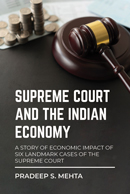
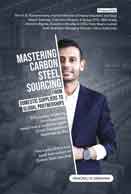



-web-194.jpg)
-front.jpg)
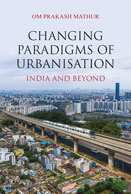









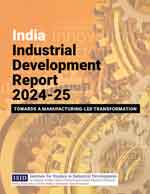
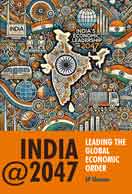
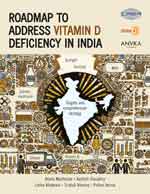
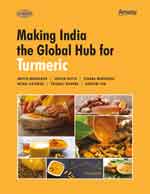
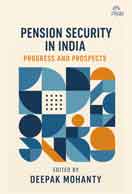
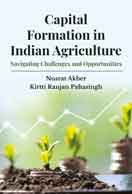









-COVER-web-194.jpg)





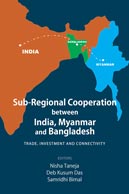























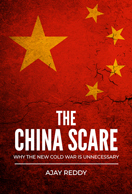
.jpg)






